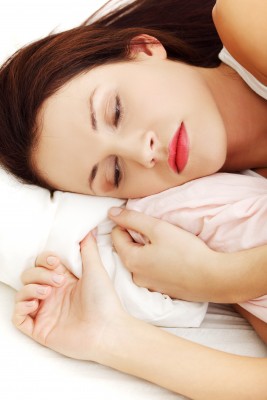Sex Question Friday: I Can’t Seem To Orgasm. What Should I Do?
July 26, 2013 by Justin Lehmiller

Every Friday on the blog, I answer people’s questions about sex, love, and relationships. This week’s question comes from a female reader who can’t reach orgasm in any sexual situation and wants to know what she should do.
I can’t climax. It does not happen with my partner, nor does it happen in a hookup. It does not happen during intercourse, nor during masturbation or oral stimulation. Should I see a doctor about that? Or maybe a sex therapist?
Thanks for submitting this question. You are not alone in having difficulties reaching orgasm. In fact, some studies have found that as many as 42% of women report at least occasional orgasmic problems, and about 10% of women report never having had an orgasm in their lifetime by any means of stimulation [1]. Among women who never or rarely reach orgasm and who are distressed about this, it would be appropriate to consult a physician or sex therapist because they may be able to identify the underlying cause and provide a solution.
It is important to keep in mind that there are biological, psychological, and social factors that can contribute to female anorgasmia (i.e., a lack of orgasm) [1]. Biological factors include chronic illnesses that affect the nervous system (e.g., multiple sclerosis), as well as substance use and medications. In particular, antidepressants from the class of selective serotonin reuptake inhibitors (SSRIs), such as Prozac, are notorious for having negative sexual side effects, including delayed or absent orgasm. Psychological factors that can make orgasm difficult include depression, anxiety, concerns about unwanted pregnancy and/or contracting STIs, severe stress, and a previous history of sexual abuse. Social and environmental factors include poor communication between partners, relationship conflict, as well as holding cultural and religious beliefs that prohibit sex or deny female sexual pleasure. Orgasmic problems can often be traced to one or some combination of these factors.
The type of treatment recommended varies depending upon the cause, and could potentially include some type of cognitive-behavioral therapy, couples counseling, and/or a medical treatment (e.g., switching to a non-SSRI antidepressant). One of the most frequently prescribed treatments for female anorgasmia is directed masturbation, which involves teaching a woman effective stimulation techniques that she practices on her own at first. Once she gets comfortable having orgasms by herself, her partner reenters the picture and she teaches him those same techniques. A review of studies on directed masturbation has found that most women who try it end up becoming orgasmic [2]. Cognitive-behavioral therapies are by far the most effective treatment route. Medication therapy is far less likely to work. In fact, most medications that have been scientifically tested to date (including bupropion, ephedrine, and ginkgo biloba) are no more effective at improving women’s orgasmic function than placebos [2]. Thus, there is no magic pill. However, there is a medical device available by prescription only known as Eros that has been shown to help women who report low sexual arousal and/or orgasmic difficulties. It is basically the equivalent of a penis pump for women and it works by increasing blood flow to the clitoris. You can read more about the device and how to obtain it here.
Anorgasmia is something that many women experience for a variety of reasons. If you are consistently unable to reach orgasm and this bothers you, definitely consider speaking to a professional because there are treatments worth pursuing.
For past Sex Question Friday posts, see here. Want to learn more about The Psychology of Human Sexuality? Click here for a complete list of articles or like the Facebook page to get articles delivered to your newsfeed.
[1] American Psychiatric Association (2013). Diagnostic and statistical manual of mental disorders (5th edition). Washington, DC: American Psychiatric Publishing.
[2] Meston, C. M. (2006). Female orgasmic disorder: Treatment strategies and outcome results. Women’s sexual function and dysfunction: study, diagnosis, and treatment.
Image Source: 123rf.com
You Might Also Like:

Dr. Justin Lehmiller
Founder & Owner of Sex and PsychologyDr. Justin Lehmiller is a social psychologist and Research Fellow at The Kinsey Institute. He runs the Sex and Psychology blog and podcast and is author of the popular book Tell Me What You Want. Dr. Lehmiller is an award-winning educator, and a prolific researcher who has published more than 50 academic works.
Read full bio >

